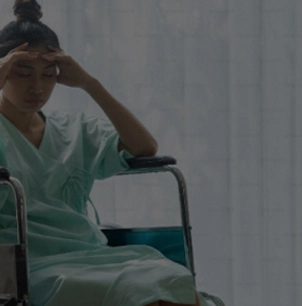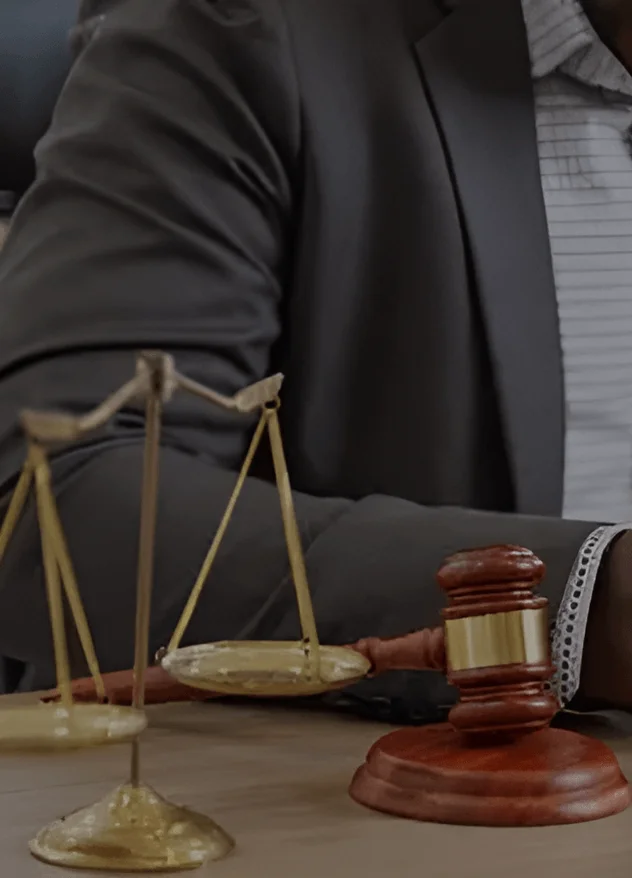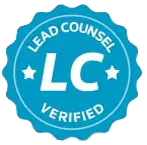So How Much Is My Claim Worth?
The only way to get a good idea of the approximate value is to discuss the details of your case with a personal injury lawyer. We’ll review the damages listed above to ensure nothing is missed, then arrive at a ballpark figure.
It’s important to understand that there are other factors affecting the amount of your final settlement. One important consideration is whether the insurance adjuster believes you are partially at fault for your injuries.
What Is Modified Comparative Negligence?
Often, people assume that an accident or injury is one party’s fault, but this isn’t always the case. In many situations, two parties contributed to the injuries. For instance, car accidents are frequently caused by both drivers.
One might race through a red light while the other is distracted looking at their phone.
Who caused the accident? Both parties were negligent.
The insurance adjusters for both drivers would likely negotiate with each other and ultimately determine a breakdown of fault. One driver might be 60 percent responsible, while the other is 40 percent responsible, for example.
In Illinois, injured parties can still recover damages if they contributed to their injuries, so long as they are less than 50 percent at fault. So, in our car accident example, the driver who is 40 percent responsible could still recover damages from the driver who is 60 percent at fault.
However, there is one more important detail to understand about modified comparative negligence. The lesser responsible party can recover damages but will lose whatever percentage of fault they have from the final settlement.
So, the driver who is 40 percent at fault could only recover 60 percent of their damages.
It’s also important to note that percentages of fault can be somewhat subjective.
In some cases, an insurance adjuster may overestimate an injured person’s share of responsibility. In others, the adjuster might assign some degree of fault to a person who had none.
The best way to avoid these difficulties is to engage an experienced personal injury lawyer who can analyze the evidence and fight for a fair evaluation of your contributions (if any).
How Long Does It Take To Settle a Personal Injury Claim?
As with the final settlement amount, the time it takes to settle a personal injury claim is highly variable and affected by multiple factors. Some cases may be settled in six months to a year, while others could take two years or more.
Here are some issues that may affect how quickly your claim can be settled:
The Severity of Your Injuries
The more severe your injuries are, the more your claim will likely be worth. Claims involving severe injuries and higher dollar amounts tend to take longer to settle for several reasons:
- The insurance adjuster will spend more time reviewing your claim. They will look for every opportunity to cut costs, including blaming you for the accident, rejecting medical bills as unnecessary, or in some cases, even questioning the validity of your injuries. Of course, this can also happen with smaller claims, but adjusters will give more attention to larger ones.
- Because the insurance company will work harder to reduce your settlement, we will probably spend more time negotiating for a better deal. In some cases, the first few offers are inadequate, and if you want to pursue a more equitable settlement, we’ll work to address the adjuster’s objections.
- It often takes time to learn the full extent of your injuries. In general, we will only settle your claim once we are sure your treatment is finished to confirm that all your medical bills are included. We don’t want you to discover that you need another surgery or more treatment and you don’t have enough to cover future expenses. When a client has more severe injuries, they often spend a longer time in treatment.
- However, if your injuries are very severe and it appears you will need lifelong care, we will estimate your future costs.
- Determining permanent disability or impairment can also lengthen the time your claim takes. We can seek compensation if you suffered a permanent injury, but we will need medical experts to agree that your condition is unlikely to ever improve. This can take time, as many doctors can’t make a determination until months after the injury or until the patient has tried all potential treatments.
The Insurance Company’s Cooperation
We know our clients are eager to settle their claims as quickly as possible, and we’ll do everything we can to make that happen. However, we often spend a significant amount of time waiting to hear back from the insurance company.
In some cases, the insurer could take weeks or months to review documents or come up with an offer. Although we follow up as needed and will take the next steps in court if necessary, there are times when we can’t do anything else until the insurance company responds.
The Possibility of Going to Trial
First, we want to clarify that most personal injury cases settle out of court, so it is unlikely you will need to go to trial. However, in a few situations, the insurance company simply refuses to settle on a fair amount for the client’s damages.
We will do everything possible to negotiate a better deal, but occasionally, the insurer won’t budge.
In these situations, the client has two choices: They can accept an offer for a lower amount, or they can take the case to court. We’ll review these options and answer any questions you have, but ultimately, the decision will be yours.
If you decide to go to court, this will likely add months to the timeline, as court cases often move slowly. The initial proceedings could take weeks or months, depending on how busy the court is.
Jury selection is also a lengthy process, potentially followed by weeks of presenting evidence, questioning witnesses, etc.
The Number of Parties Involved
In some situations, we may try to recover from multiple parties, such as two or more insurance companies, which can slow the progress of your case.
The Necessity of Proving Fault
When the fault is disputed by the other party or their insurance carrier, we may need to spend more time investigating the accident or injury, gathering evidence, building a strong case, and then convincing the involved parties. As a result, cases where the fault is clear, undisputed, or easily proven tend to resolve more quickly.
If you have questions about when your claim might settle, your attorney should be able to give you a general idea based on the specifics of your case.
What Kinds of Injuries Qualify for a Personal Injury Claim?
The type of accident or injury is less important than evidence of negligence. If another party’s negligence led to your injury, and we can find evidence to support this assertion, it’s likely you could have a successful claim.
One of the biggest challenges is that many injured people don’t realize their injuries were caused by another’s negligence. If you are unsure what happened or suspect that someone else might be at fault, we urge you to discuss your case with an experienced personal injury lawyer.
Here are some broad categories of cases we handle, but remember that even if your accident or injury doesn’t seem to fit one of these, you might still have a case:
- Motor vehicle accidents, including those involving cars, trucks, motorcycles, bicycles, and pedestrians.
- Other transportation accidents, such as those with boats, golf carts, ATVs, or aviation.
- Construction accidents.
- Dog bites.
- Premises liability, or injuries that occur on another party’s property due to the property owner’s negligence.
- Daycare or nursing home injuries.
- Medical malpractice.
- Worker’s Compensation, which applies in most situations where an employee is injured while at work.
Where Can You Get Assistance From an Aurora Personal Injury Law Firm?
The Personal Injury Lawyers™ are here to help answer your questions, lay out your options, and pursue the best possible settlement for your injuries. Founded by attorney Robert S. Fakhouri, our Aurora car accident attorneys fight for injured clients and their families every day and have recovered millions of dollars in damages.
Please contact us at 312-999-9990 at any time for a free consultation about your case.

















